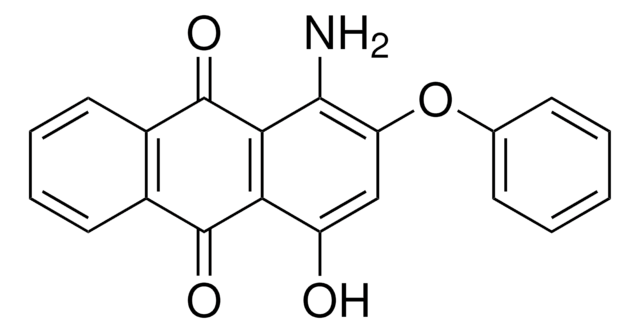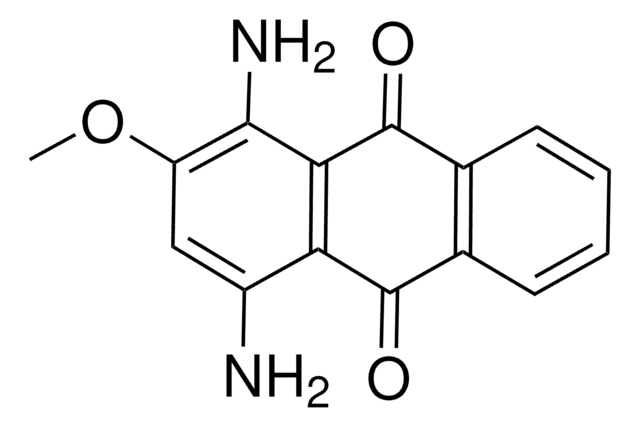11344
Disperse Yellow 3
analytical standard
Synonym(s):
4-(2-Hydroxy-5-methylphenylazo)acetanilide, N-[4-(2-Hydroxy-5-methylphenylazo)phenyl]acetamide
About This Item
Recommended Products
grade
analytical standard
Quality Level
Assay
≥96.0% (HPLC)
shelf life
limited shelf life, expiry date on the label
technique(s)
HPLC: suitable
gas chromatography (GC): suitable
mp
268-270 °C (lit.)
application(s)
cleaning products
cosmetics
environmental
food and beverages
personal care
format
neat
SMILES string
CC(=O)Nc1ccc(cc1)N=Nc2cc(C)ccc2O
InChI
1S/C15H15N3O2/c1-10-3-8-15(20)14(9-10)18-17-13-6-4-12(5-7-13)16-11(2)19/h3-9,20H,1-2H3,(H,16,19)
InChI key
PXOZAFXVEWKXED-UHFFFAOYSA-N
Looking for similar products? Visit Product Comparison Guide
General description
Application
Packaging
Signal Word
Warning
Hazard Statements
Precautionary Statements
Hazard Classifications
Carc. 2 - Skin Sens. 1
Storage Class Code
11 - Combustible Solids
WGK
WGK 2
Flash Point(F)
Not applicable
Flash Point(C)
Not applicable
Personal Protective Equipment
Regulatory Listings
Regulatory Listings are mainly provided for chemical products. Only limited information can be provided here for non-chemical products. No entry means none of the components are listed. It is the user’s obligation to ensure the safe and legal use of the product.
EU REACH Annex XVII (Restriction List)
Choose from one of the most recent versions:
Certificates of Analysis (COA)
Don't see the Right Version?
If you require a particular version, you can look up a specific certificate by the Lot or Batch number.
Already Own This Product?
Find documentation for the products that you have recently purchased in the Document Library.
Customers Also Viewed
Our team of scientists has experience in all areas of research including Life Science, Material Science, Chemical Synthesis, Chromatography, Analytical and many others.
Contact Technical Service












